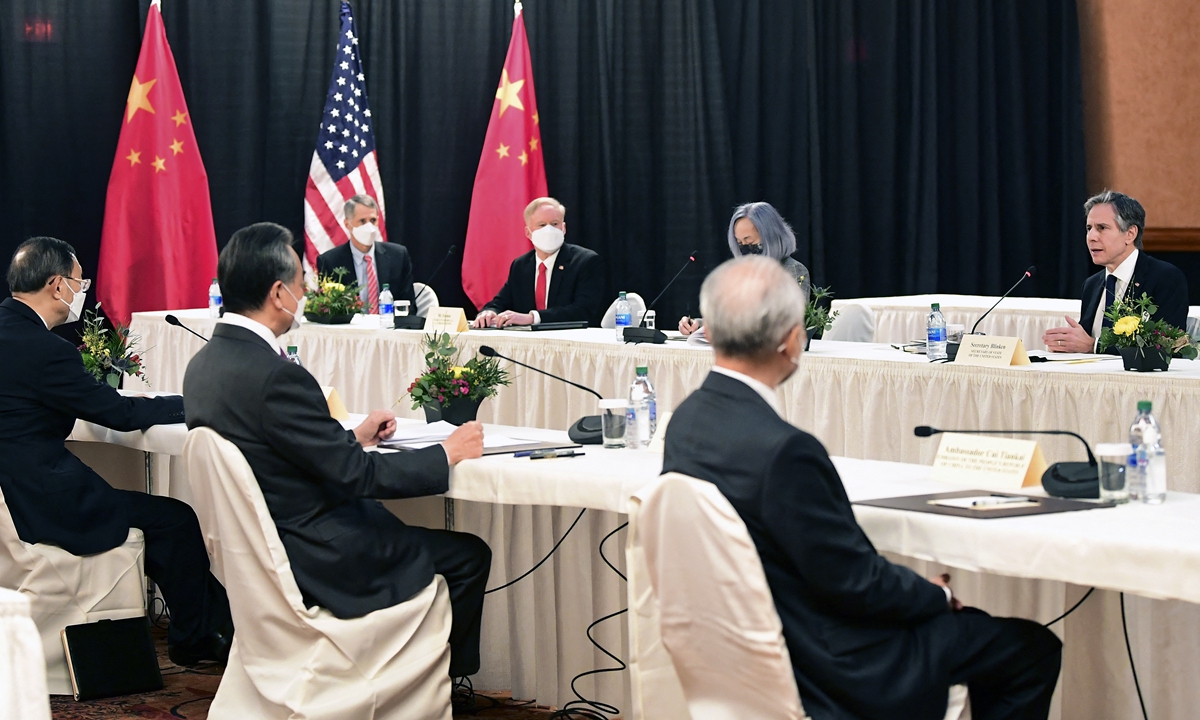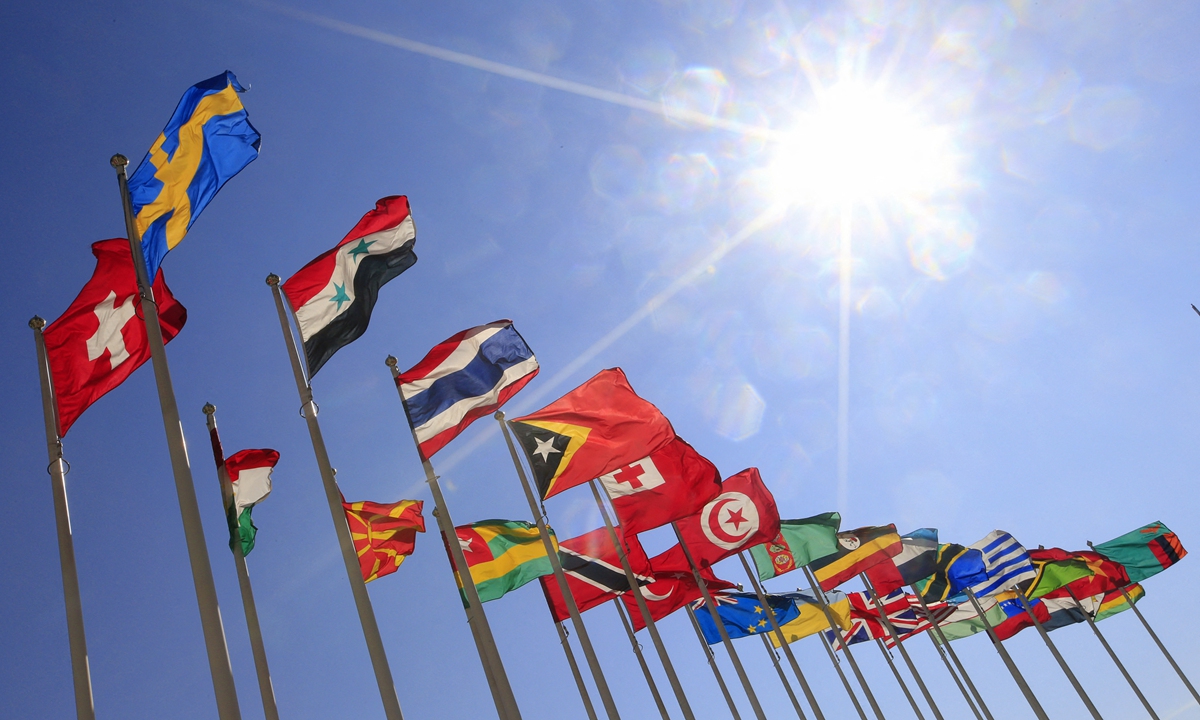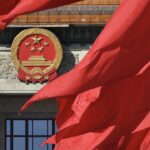Editor’s Note:
Who is the Communist Party of China (CPC)? What is the CPC’s role in the new era? The CPC has grown into one of the largest parties in the world in the process of leading the Chinese people in seeking liberation and happiness, making China as strong and prosperous as it is today.
As the CPC ushers the nation into a new era of development, the last decade has witnessed great achievements in national strength and prosperity, with people’s confidence and recognition of this path rising to unprecedentedly high levels.
With more than 96 million members, the CPC will convene its 20th National Congress in October, which is expected to guide the country’s development and policymaking. Ahead of the meeting, the Global Times is publishing a series of stories to help the world understand the CPC in the new era, through the stories of CPC members working on the frontlines of various fields, as well as through observations made by respected scholars.
This installment focuses on how the CPC has practiced the concept of diplomatic equality over the last decade, according to stories from and observations of a senior diplomat with vast experience.

Chinese Ambassador to Kiribati Tang Songgen takes a photo with a local teenager in Kiribati. Photo: Courtesy of Tang
Since the convening of the 18th National Congress of the CPC a decade ago, China, under the leadership of the CPC, has promoted the concept of equality as a principle of its diplomatic approach.
If you pay close attention to the speeches of Chinese leaders and foreign minister on various international diplomatic occasions, you will find that equality is one of the words that appear most frequently.
During a speech at the 22nd meeting of the Council of Heads of State of the Shanghai Cooperation Organisation (SCO) this month, Chinese President Xi Jinping again underlined “equality between nations,” saying that “we are committed to the principle of equality among all countries regardless of their size, consensus-based decision-making, and addressing issues through friendly consultations,” the Xinhua News Agency reported.
“We reject the practice of the strong bullying the weak or the big bullying the small,” said Xi.
The CPC’s view of diplomatic equality, Xi elaborated, has been consistently applied not only in China’s exchanges with developing countries and emerging economies, but also in its exchanges with traditional Western powers.
At a joint press conference after meeting with Soroi Eoe, minister for foreign affairs and international trade of Papua New Guinea (PNG) on June 3, visiting Chinese State Councilor and Foreign Minister Wang Yi characterized China’s development of relations with other developing countries with three key words, with the first one being “equality.”
Certain major countries often talk about global leadership “from a position of strength,” Wang said, noting that China will never be like them, according to Xinhua.
Equal ties with small states
As an experienced envoy with rich overseas experience in the US, Eritrea, Kiribati over the past 25 years, Chinese ambassador to Kiribati Tang Songgen always highlighted the historical roots and cultural basis of the CPC’s concept of diplomatic equality. The “great harmony for the whole world” is a thousand-year dream of the Chinese nation, and “common prosperity” is the long-term goal of socialist countries, he told the Global Times in an exclusive interview.
China put forward the Five Principles of Peaceful Coexistence as early as the 1950s, emphasizing the equality of all countries, big or small, which have become important norms governing international relations until now. Today, President Xi proposed “building a community with a shared future for mankind,” which emphasizes respecting each other, discussing issues as equals, resolutely rejecting the Cold War mentality and power politics, and taking a new approach to developing state-to-state relations with communication, not confrontation, and with partnership, not alliance, said Tang, who recalled how the concept of equality was inherited in the diplomatic wisdom of the CPC from decades ago.
Over the past decade, equality and mutual respect have become important norms governing the relations between China and Pacific Island countries (PICs). This is reflected in China’s sincere listening to Kiribati’s needs, for example, providing assistance and support to the best of its ability in light of the actual interests of the Kiribati people, and truly helping Kiribati achieve independent and sustainable development instead of taking a condescending position, said Tang.
The principle of equality is also reflected in the daily interactions between Chinese diplomats and the local people. “For instance, for the past three years of resumption of diplomatic ties, we Chinese diplomats have visited nearly half of the Kiribati’s outer islands, and entered many local communities to sit on the floor to hear their stories, wearing their traditional costumes, dancing together, and learning Kiribati language,” Tang told the Global Times.
“I still remember that once we were invited to be guests by a community at the local Maneaba, or meeting house, which is traditionally the center of village life and the heart of the community in Kiribati. Local traditional convention requires people to go barefoot when entering the Maneaba. Though local community leader dissuades us from taking off shoes as foreign guests, I insisted on following the traditions to go barefoot, and declined their offer of a separate guest chair but rather to sit cross-legged on the floor with local residents. During a part of Chinese cuisine cooking show, I kneaded dough and tried to make Chinese snacks for local friends in a cordial way. That makes local people feel a genuine respect from Chinese diplomats. With equality and respect, we gained trust, friendship and fruitful results after two countries resumed ties over past two years,” Tang recalled.
Some Western countries and media outlets always interpret things through a Cold War lens in seeing the China-PICs cooperation. They have hyped Kiribati’s plan to reopen a protected marine zone for fishing and to upgrade an airstrip on the Kanton Island, to slander China, ignoring Kiribati’s official statement, and to interfere and criticize PICs’ sovereign policies in a biased way.
These scandalous deeds are intended to disrupt the cooperation between China and the PICs, but in fact they have trampled on the dignity of the island countries and seriously hurt the feelings of their people, Tang said.
“These countries often refer to the island countries as their ‘backyard,’ which reveals a serious colonial mentality. Even in the 21st century, they are still attempting to define their spheres of influence, regard the island countries as pawns in geopolitical games, and push the island countries into a geopolitical battlefield. The people of the island countries are indeed well aware of this. It is in sharp contrast to China’s equal and sincere attitude toward PICs,” Tang noted.
After concluding his tour to eight Pacific island countries in early June, Chinese State Councilor and Foreign Minister Wang Yi said in an interview with media that China has always adhered to a diplomatic vision that all countries, big or small, are equal. The Chinese side always respects the sovereignty and territorial integrity of Pacific island countries, respecting their people’s exploration of development paths suited to their national conditions, and does not interfere in Pacific island countries’ internal affairs, Wang said.

Senior diplomats from China and the US meet in Alaska on March 18, 2021. Photo: AFP
Rejecting ‘position of strength’
In addition to showing respect for developing countries, the CPC’s concept of diplomatic equality is also reflected in China’s increasingly frequent exchanges with the West on international diplomatic occasions over the last decade.
Yang Jiechi, a member of the Political Bureau of the CPC Central Committee and director of the Office of the Foreign Affairs Commission of the CPC Central Committee, told the US that it isn’t qualified to “speak from a position of strength” in a meeting with senior US diplomats in Alaska in March, 2021.
Zhang Weiwei, director of the China Institute of Fudan University in Shanghai, said in a TV show in April 2021 that the Alaska talks opened China’s “equal-footing diplomacy” in the new era.
China has argued on the basis of reason with Western countries and refuted their groundless accusations on many international occasions, showing that the Chinese people do dare to take traditionally strong powers as equals, while the US is no longer qualified nor does it have any footing to contain or lecture China, observers said.













